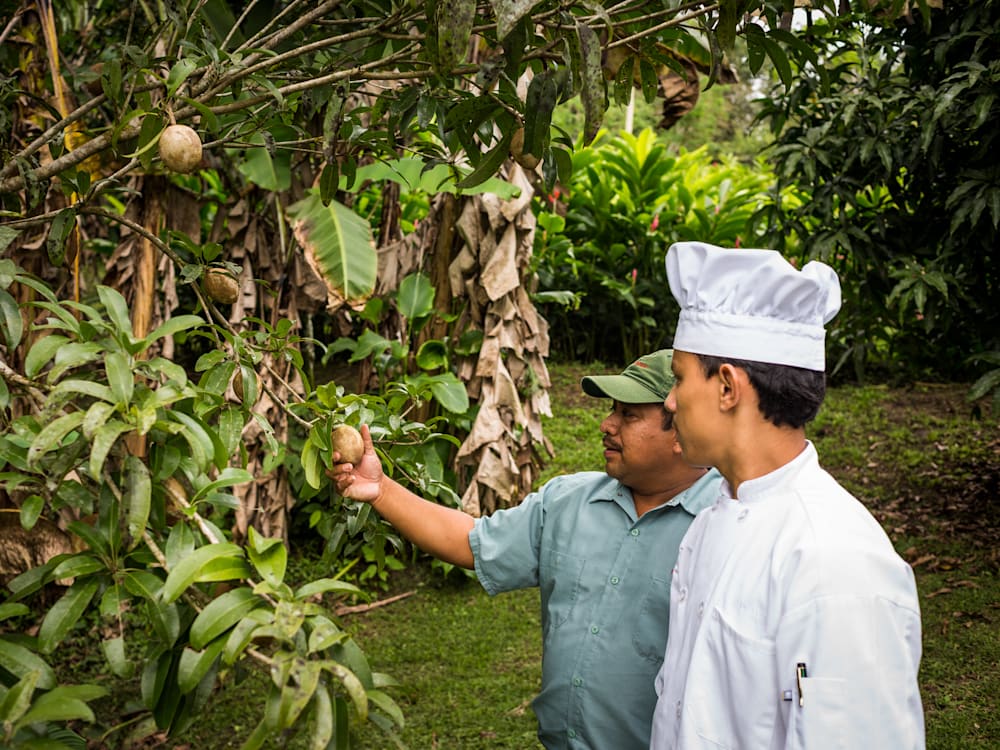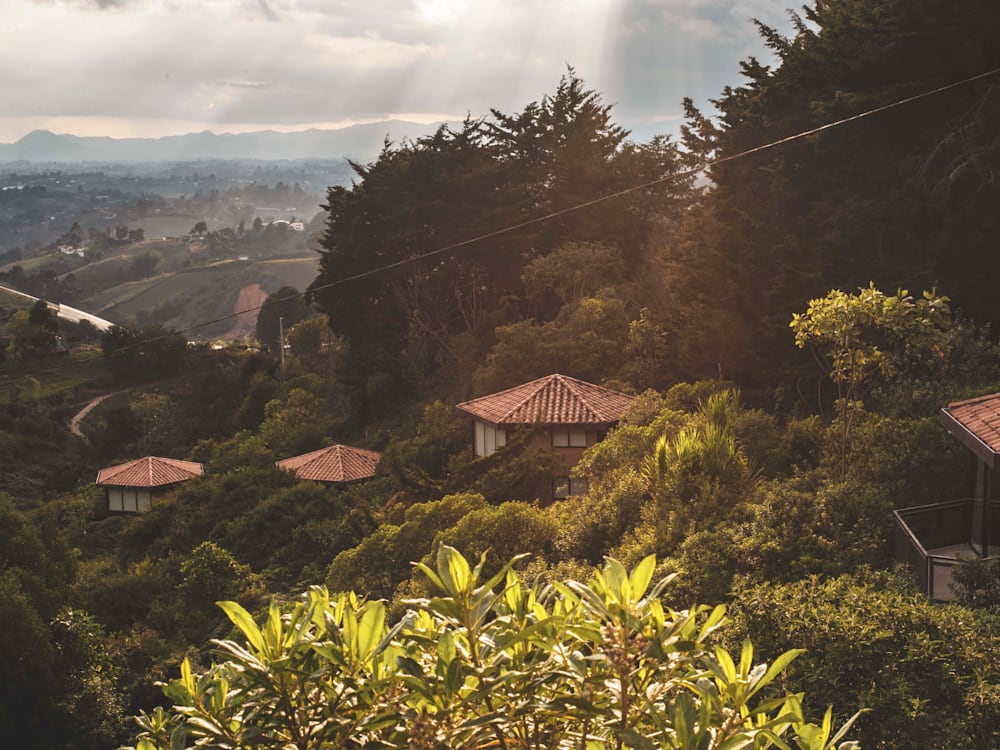Sustainability: it’s at the forefront of every hotelier’s mind. So it should be, with the UN recording 1.4 billion overnight hotel stays around the world in 2024, a number that’s only expected to increase. Mr & Mrs Smith might only account for a fraction of that, but it’s clear we’ve all got our work cut out.
Before anyone starts feeling sombre, there’s still plenty to feel good about. At Smith, we’re seeing incredible initiatives and commitment from hotels we work with, and plenty go the extra mile to cultivate lasting relationships with the communities around them. As is often the case, success starts with building relationships on the ground, where teams know the area like the back of their hand.
This method is all too familiar to the World Land Trust (WLT), one of Mr & Mrs Smith’s charity partners. Founded in 1989, the WLT has spent more than 30 years protecting natural ecosystems around the world. We’ve highlighted its ‘Buy An Acre’ project before; an initiative set up in the face of rampant habitat loss that has so far secured more than 2.4 million acres of threatened territory and funded 82 reserves. The Trust is something of a facilitator, empowering and funding local organisations on the ground who know exactly what their environment needs. Read on to find out more about WLT’s vital conservation projects in the Americas — and the sustainable Smith hotels nearby.
GROWING COMMUNITIES IN COSTA RICA

Costa Rica was one of the first countries to make it onto the WLT’s books. In 1994, the Trust contributed to the purchase of land in what is now the Corcovado National Park. Alongside buying 4,991 acres, they helped local landowners acquire conservation rights on land where outright purchase wasn’t possible. Not only did they extend the reach of their conservation, they benefitted locals by making them stakeholders in the conservation process. New jobs that revolved around non-consumptive use of the forest were filled by people from the area, who in turn promoted small-group tourism and passion for the tropical habitat.
Smith hotel Rio Perdido has taken a similar path. The earth-kind retreat is at the heart of a 1,500-acre reserve of dry forest deep in Guanacaste Province, where its 30 bungalows are so well disguised among the trees you’d hardly know it was there, save for the circular restaurant that peeks over the forest canopy. There’s an abundance of nature-rich experiences on offer, including canyoning on the Río Blanco, wildlife walks, stargazing and bathing in medicinal springs.
So far, so impressive. But in a landscape as wild as this, there’s also a responsibility to the surrounding communities who are the forest’s long-term custodians. At Rio Perdido, 90% of the staff are recruited locally but the commitment goes beyond the grounds. Thanks to the hotel’s support, the local community of San Bernardo is able to participate in the Blue Flag Ecological Program, which includes initiatives like tropical reforestation, cleaning rivers, support for local artists and education for schoolchildren, ensuring today’s kids have a chance to become tomorrow’s conservationists.
PRESERVING THE ECOSYSTEM IN BELIZE

Belize occupies a special place in WLT history. The Trust was founded in 1989 to support the creation of the Rio Bravo, a 254,000-acre reserve that includes broad-leaved forest, scrub forest, savanna, mangroves and ancient Maya ruins. There’s incredible biodiversity throughout, including rare mammals like Geoffroy’s spider monkeys, Baird’s tapirs and American manatees. In the years since, the WLT has been involved in the creation of several neighbouring reserves, making it the custodian of an ecological treasure trove. The whole region is what’s known as a ‘last-chance ecosystem’, meaning protection is non-negotiable if you want to avoid the eventual breakdown of the delicate habitat.
Blancaneaux Lodge, one of the Family Coppola Hideaways, is close to Rio Bravo reserve, ensconced within the Mountain Pine Ridge Forest Reserve to the south. Francis Ford Coppola visited the area in the Eighties and fell in love with the place, establishing a family retreat that is now a luxury lodge. Sustainability is baked in here: the whole hotel is powered by its own hydroelectric plant, food is sourced from an organic garden and orchard, and air-conditioning is forgone in favour of a naturally cool design scheme that has been used for millennia: vaulted ceilings and thatch roofs that allow heat to escape throughout the day.
There’s much more going on behind the scenes, too. The Lodge actively supports scientists and NGOs engaged in biodiversity research, supporting initiatives like the Ix Jaguar Project and study of endangered scarlet macaws. Outreach is a big part of the agenda, with the hotel sponsoring a wildlife-watching club at the local school, where children carry out field work that revolves around protecting wildlife, research techniques, habitat preservation and organic farming.
EDUCATION IN COLOMBIA

The World Land Trust is equally active in South America, where some of the world’s most biodiverse countries can be found. One of these so-called ‘megadiverse’ countries is Colombia, where WLT supported the creation of the Guanacas Reserve, north of Medellín in the cloud forests of the Colombian Andes. The 1,285-acre reserve was founded in 1990 by World Land Trust partner Fundación Guanacas Bosques de Niebla, which has been regenerating the ecosystem and protecting it from cattle ranching, logging and excessive agriculture.
The Fundación also provides environmental education to primary schools and employs people from local communities, some of whom are rangers or involved in reforestation programmes. All of this comes together to nurture an ecosystem that is extraordinarily diverse: Colombia has 1,866 bird species (more than anywhere else on the planet), 824 amphibians, 601 reptiles and an incredible 4,270 varieties of orchid. Brown spider monkeys, spectacled bears and golden poison dart frogs are among the 97 rare and endangered species found on the reserve.
Cannúa hotel, suspended over the valley floor in mountainous Marinilla, is a green-minded lodge that echoes the attitude of the Fundación. Its window-walled rooms and cabanas are built of compressed earth bricks — over 100,000 of them — which were made from the soil on which they stand. An on-site reforestation project has revived nine glorious hectares of the mountainside, attracting endangered birds, frogs and other native critters back to the land after years in exile (they’ve already identified 80 types of bird on the property). There’s a strict no-waste policy in action, with the restaurant focusing on the use of non-traditional mountain plants and hyper-local, low-waste produce, much of it grown in their 8,000-square-metre vegetable garden.
It’s all very impressive, but how do the locals benefit? As you might expect, the approach here is holistic. Cannúa has been offering English lessons to some of its neighbours, providing life skills and new routes into jobs. They also host workshops on farming, good permaculture practice and effective waste management, giving locals the tools to begin sustainable practices of their own. Colombia only really came onto the international travel scene since the ceasefire between government forces and FARC rebels in 2016. As the country’s popularity grows and grows, initiatives like those at Cannúa will help balance two ecosystems: the one in nature and the one between business leaders, tourists and those who’ve called the land home for generations.
Mr & Mrs Smith’s contributions to the World Land Trust come from company donations made annually, and from your generosity towards our two ‘land’ and ‘sea’ partner charities (Blue Marine Foundation is the latter). We give £1 to charity whenever you buy a Get a Room! gift card — rising to £5 if you select an e-gift card —and you can donate to WLT and Blue Marine Foundation through our donations page whenever you feel inclined.
For a green getaway, explore our most sustainable hotels collection



